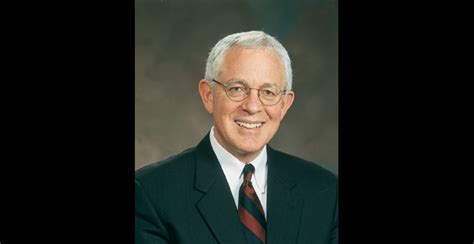A Quote by Chris Grayling
Social immobility is driven by family background, instability in childhood and often by parents who don't know how to give children the right start in life.
Related Quotes
I was appalled at how children had become the focus and gravitational center of the nuclear family around which parents orbited instead of the traditional arrangement in which children orbited around their parents. This is a huge change because a critical job in early childhood is to get children weaned away from the total narcissism normal to infancy. With the children as the center of the family's actions and decisions, narcissism is at a minimum prolonged and may never significantly decline.
You don't know the things in your childhood that influence you. You can't possibly know them. People today try to analyze the early environment and the reasons for something that happened, but if you look at children of the same family -- children who have identical parents, go to identical schools, have an almost identical upbringing, and yet who have totally different experiences and neuroses -- you realize that what influences the children is not so much the obvious externals as their emotional experiences. Of course any psychiatrist knows that.
Like so much of what is worthwhile in life, our needs for friendship are often best met in the home. If our children feel friendship within the family, with each other, and with parents, they will not be desperate for acceptance outside the family. I think one of life’s most satisfying accomplishments for my wife and me is to have lived long enough to see our children become good friends.
What we often take to be family values--the work ethic, honesty, clean living, marital fidelity, and individual responsibility--are in fact social, religious, or cultural values. To be sure, these values are transmitted by parents to their children and are familial in that sense. They do not, however, originate within the family. It is the value of close relationships with other family members, and the importance of these bonds relative to other needs.
I know in my own marriage I stayed in it to provide my son with what I thought was a stable background and to give him what I thought was the family life a child should have with two parents. But that isn't always the best way, and it took me taking my son to therapy after the divorce to really see it.
I would love to have a complete family. I'd love to do it all at once. I'd love to be able to give to my children what my parents were able to give to me. And if I'm blessed to be able to do that, fantastic. If I'm not, then life goes on. You have to do the best you can. I do think we have to bring the family back; I do.
I know in my own marriage I stayed in it to provide my son with what I thought was a stable background and to give him what I thought was the family life a child should have with two parents. But that isnt always the best way, and it took me taking my son to therapy after the divorce to really see it.
Children need directing and teaching what is right in a kind, affectionate manner How often we see parents demand obedience, good behavior, kind words, pleasant looks, a sweet voice and a bright eye from a child or children when they themselves are full of bitterness and scolding! How inconsistent and unreasonable this is!

































